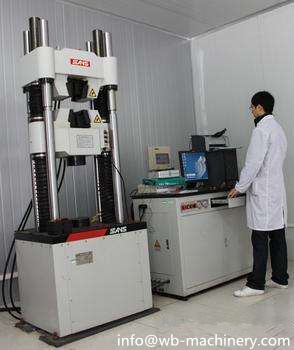Categories
- Company News (17)
- Technology Support (31)
 Tensile strength
Tensile strengthTensile strength is the most important physical property for iron castings. Its unit is RmN/mm2. Tensile strength will show the strength of cast iron when it is pulled until broken. For example, the ductile iron 60-40-18 has tensile strength of 60000 psi, therefore, it is equal to 414 Mpa. Therefore, if your parts need to use this material, then your supplier should keep their iron castings with min. 414 Mpa tensile strength.
Yield strength is another definition to define the strength of cast iron, I do not talk about its real meaning here. It is not very necessary to check this property since it just more deeply measure the strength of cast iron. The tensile strength has already covered the most of requirements to the strength. As for the ductile iron 60-40-18, its yield strength is 40000 psi, equal to about 276 Mpa.
Sometimes, elongation is very important. High elongation means the iron casting can be pulled to longer, which means they have better ductility or called as malleability. Therefore, they will not be broken easily. The ductile iron has higher elongation than gray iron. As for the ductile iron 60-40-18, it has 18% elongation.
Hardness is also important sometimes. As for the machined parts, the hardness should not be too high to affect the machining process. As usual, the Brinell Hardness from 160-220 should be a good range. Too high may cause the hard spots during machining, too low will affect the application. Some buyers required the Rockwell hardness as the standard.